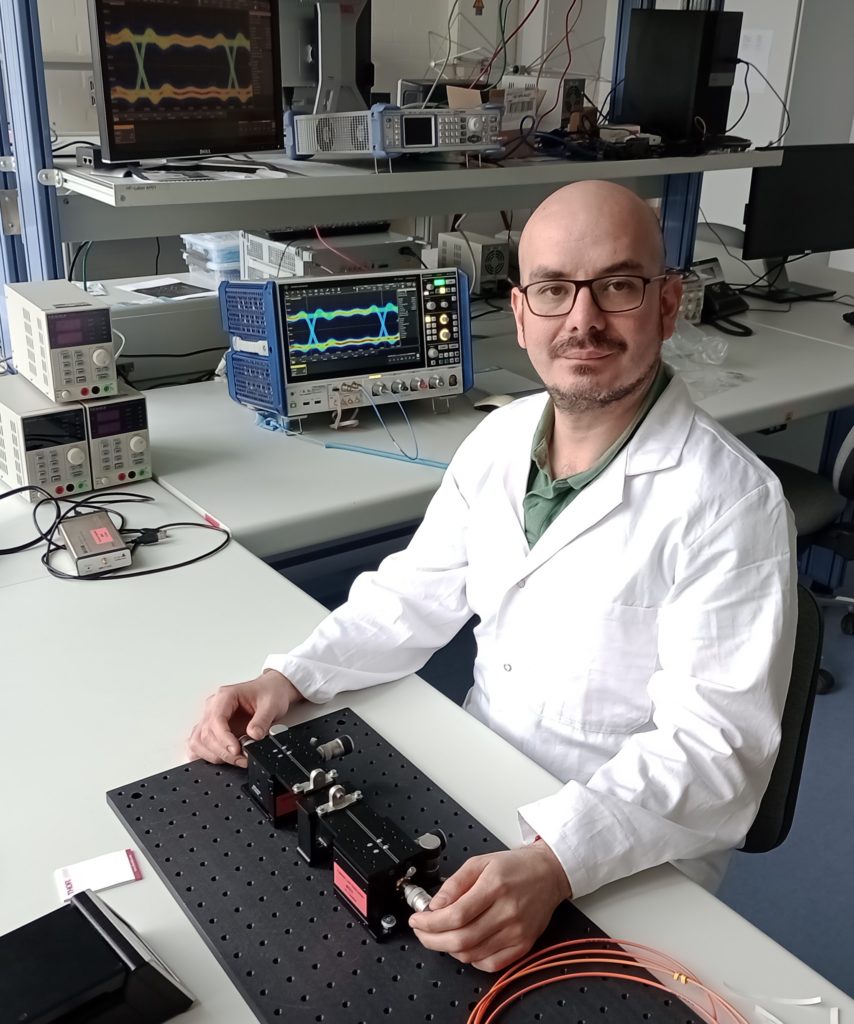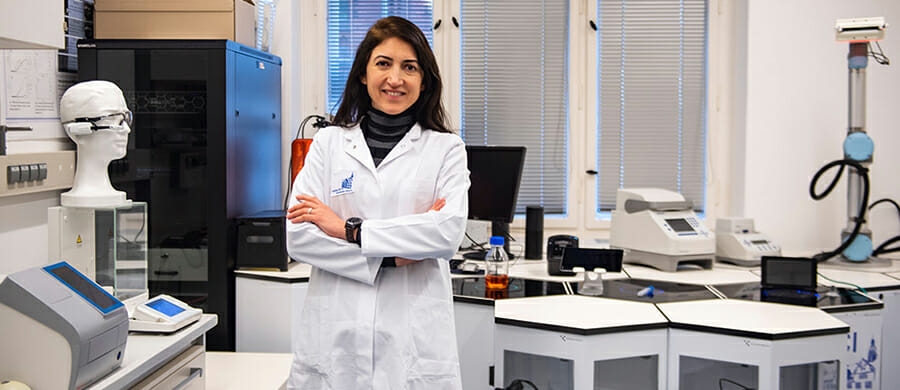DATA & FACTS
Project
2023-2025
Scientific contact
Prof. Dr.-Ing. habil. Niels Neumann Dr. Ivan Torres
EU-Funding line
Horizon Europe’s Marie Skłodowska-Curie Actions Postdoctoral fellowship (MSCA-PF)
Projektleitung: Prof. Dr.-Ing. Arno Kwade
Projektname: „Li-Ion Pilot Lines Network“ (LiPLANET)
Keywords: Energie, Mobilität, Partner
Detect food allergens in real time with RESAS
The RESAS project’s goal is to fabricate a portable device able to sense extremely low concentrations of food allergens within minutes.
Background
Food allergy is the overreaction of the immune system to a non-harmful protein in certain foods, this protein is called an allergen which affects around 26 million of Europeans and 32 million of Americans. The severity of the allergic reaction may vary from less severe symptoms such as hives and digestive problems, to a quickly progressing and potentially life-threatening anaphylactic shock. This allergic reaction can be triggered even by very small amounts of the food allergen. Nowadays, food allergy is an incurable condition, so the most important preventive measure is the complete abstinence from the allergen.
Challenges in food allergen sensing
Therefore, food industry is compelled by law to label its product’s allergen content. This poses a challenge for food companies, which are not able to certify that their products are free of allergens due to cross-contamination. Additionally, patients and allergists demand improvement in the development of faster and more reliable testing methods for food allergens, since abstaining from said allergens is only possible after prior detection. Existing allergen detection methods are limited to work in a lab environment, are slow, cumbersome or costly. Consequently, developing a more suitable and convenient method for rapid allergen detection is not only novel, but can be life-saving.
Our solution: RESAS project
This is where biosensors are brought into play, as they can be implemented to rapidly and accurately detect very small concentrations of allergens present in food. This will enable the food industry to guarantee allergen free products and allow users to consume food without the fear and risks of having an allergic reaction; therefore, resolving an important health issue and improving quality of life for people with an allergic condition. The RESAS project’s goal is to fabricate a portable device able to sense extremely low concentrations of food allergens within minutes. This is achieved by combining an ultra-high sensitive biosensor substrate, an integrated optical transducer and an electrical signal processing unit. The proposed kind of sensor on the basis of integrated optics enables small size (5 cm3 approx.), high repeatability and instant response, as well as potentially low-cost which will significantly impact the food industry, food laws and improving the life quality of end-users.
The consortium
Most of the research activities are performed in the facilities of the host institution Technische Universität Clausthal. These research activities include microfabrication in a clean room, surface modification for allergen sensing and fabrication of optical waveguides. Additionally, a secondment is planned in Anvajo GmbH in Dresden. Anvajo fabricates compact solutions for the analysis of fluids using optical sensing. This secondment is planned to provide insights and exchange with respect to digital interfaces, system integration design for compact units; especially regarding manufacturing in industry, quality assurance and user friendly design requirements.
Project information
This project is funded by the European Union under the Horizon Europe’s Marie Skłodowska-Curie Actions Postdoctoral fellowship program (MSCA-PF). Grant agreement ID: 101062517.

© Dr. Niels Neumann
Authors: Dr. Ivan Torres, Dr. Niels Neumann
Date: 05.06.2024
Das könnte Sie auch interessieren …

Projekt: ScaleUp4Sustainability
Neue Ansätze der Zusammenarbeit zwischen Studierenden und Unternehmen in Deutschland, Schweden und den Niederlanden entwickelt. Zwischen 2018 und 2022 koordinierte die Universität Oldenburg ein Konsortium, bestehend aus zwei Universitäten (neben Oldenburg die Universität Linköping, SE), 6 Unternehmen (darunter die Oldenburger Unternehmen EWE Aktiengesellschaft…

ProjeKt: decades
Die chemische Industrie steht derzeit vor der herausfordernden Transformation, klassische, auf Erdöl basierende Herstellungsprozesse von Chemikalien durch nachhaltige, biobasierte Produkte im Sinne einer zirkulären Bioökonomie zu ersetzen. Insbesondere Lösungsmittel spielen in der chemischen Industrie entlang der gesamten Produktionskette eine entscheidende Rolle.
